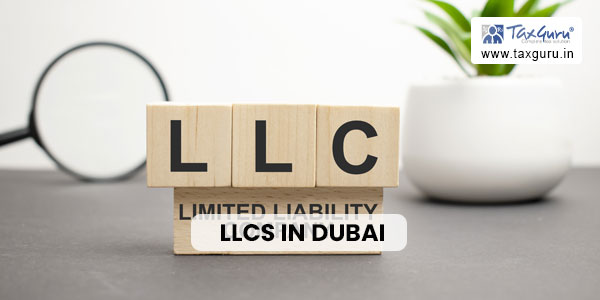Operational Compliances for LLCs in Dubai Free Zones: A Comprehensive Guide
A Limited Liability Company (LLC) operating in a Free Zone in Dubai enjoys various benefits such as tax exemptions, 100% foreign ownership, and simplified export-import procedures. However, to take advantage of these benefits, companies need to adhere to a set of stringent operational compliances. These range from Know Your Customer (KYC) protocols to Value Added Tax (VAT) regulations and Corporate Tax policies. This article aims to serve as a comprehensive guide to these compliance requirements, helping you avoid legal repercussions and ensuring the smooth operation of your LLC.
Page Contents
KYC Compliance
The cornerstone of initiating any business in a Free Zone in Dubai is adherence to Know Your Customer (KYC) norms. The company needs to provide complete identification and financial details to regulatory authorities, ensuring that the business is legitimate and not engaged in unlawful activities. Non-compliance can result in severe fines and restrictions on business operations.

VAT Registration and Returns
Offshore Transactions
Companies engaged solely in offshore transactions enjoy an exemption from VAT registration. This is a significant advantage for businesses that do not interact with mainland UAE.
Mixed Transactions
However, companies involved in both offshore and mainland transactions are required to register for VAT if their annual sales exceed AED 375,000. This requires meticulous bookkeeping to track the nature of transactions and their total value.
VAT Return Frequency
Depending on the nature of your business and its revenue, VAT returns need to be filed either on a quarterly or monthly basis, according to Companies Regulations. Failure to adhere to these deadlines can incur penalties.
Audited Financial Statements
An LLC in a Free Zone must get its financial statements audited by a Chartered Accountant in line with Companies Regulations. The audited statements must be submitted within 90 days following the end of the license renewal period or the calendar year, depending on which comes first. Non-compliance can result in financial penalties and could jeopardize the renewal of the business license.
Corporate Tax
As of June 1, 2023, the tax landscape for LLCs in Free Zones has changed.
- 0% Tax Rate: Applies if the company operates under a Qualified Zone and Qualified Activity. The specific criteria for these qualifications are yet to be prescribed.
- 9% Tax Rate: This rate is applicable to net profits for all other business activities.
Ultimate Beneficial Owner (UBO) Regulations
The identification and verification of an Ultimate Beneficial Owner are crucial steps in the registration process. The company is obligated to:
- Submit the UBO information at the point of new registration.
- Maintain up-to-date records of the UBO.
- Notify the Registrar within 15 days if there are any changes to the UBO information.
Bank Obligations
Each banking transaction must be accompanied by KYC documentation and a contract copy. Failure to meet these requirements can result in the Central Bank of the UAE freezing the company’s bank account, severely impacting business operations.
Annual General Meetings (AGMs)
AGMs are an obligatory aspect of LLC governance in Free Zones. While the first AGM can be held within 18 months of the company’s incorporation, subsequent meetings must be held within 15 months of the last AGM and no later than six months after the end of the financial year.
Conclusion
Compliance is not merely a regulatory hoop to jump through; it is a crucial element for the successful and smooth operation of an LLC in a Dubai Free Zone. From initial registration to annual operations, each compliance point, whether VAT regulations, audited financial statements, or banking obligations, has its own significance and non-adherence can result in costly penalties. Therefore, understanding, planning, and abiding by these operational compliances are not just legal necessities but also sound business practices.





